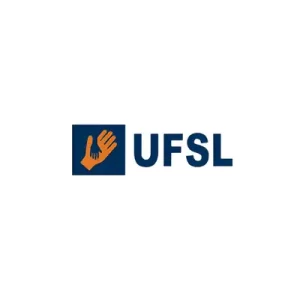
Usha Financial Services IPO
ClosedAlready have an account? Apply now
Usha Financial Services IPO details
Schedule of Usha Financial Services
| Issue open date | 24 Oct 2024 |
| Issue close date | 28 Oct 2024 |
| UPI mandate deadline | 28 Oct 2024 (5 PM) |
| Allotment finalization | 29 Oct 2024 |
| Refund initiation | 30 Oct 2024 |
| Share credit | 30 Oct 2024 |
| Listing date | 31 Oct 2024 |
| Mandate end date | 12 Nov 2024 |
| Lock-in end date for anchor investors (50%) | 28 Nov 2024 |
| Lock-in end date for anchor investors (remaining) | 27 Jan 2025 |
Note: The schedule is tentative. The anchor lock-in period ends 30 days after the actual allotment date for 50% of the shares and 90 days after for the remaining portion. The allotment status can be checked on the registrar's website and the exchange website.
About Usha Financial Services
Usha Financial Services Limited, established in 1995, is a non-banking finance company (NBFC) offering lending solutions to other NBFCs, corporates, MSMEs, and individuals, with a focus on financing for women entrepreneurs and Electric Vehicle (EV) initiatives.
Operating through Retail Lending and Wholesale Lending models, it provides a range of financial products such as green financing and MSME loans. Currently, the company collaborates with 4 banks and 15 NBFCs to support its lending activities.
Financials of Usha Financial Services
Issue size
| Funds Raised in the IPO | Amount |
| Overall | ₹98.45 crores |
| Fresh Issue | ₹98.45 crores |
| Offer for sale | – |
Utilisation of proceeds
| Purpose | INR crores (%) |
| Augment the capital base | 71.55 (71.11%) |
| Repayment of Borrowings | 28.45 (28.89%) |
Strengths
- Strategic partnerships with NBFCs expand the company’s lending reach across urban, semi-urban, and rural India.
- Strong risk management and due diligence processes ensure thorough customer evaluation and regulatory compliance.
- Experienced management team with over 25 years in the industry drives growth and client satisfaction.
Risks
- The business requires substantial capital, and disruptions in financing could negatively impact operations and cash flows.
- Dependence on a limited number of customers for a significant share of revenue creates risks if major clients are lost.
- Deterioration in credit quality and rising NPAs may adversely affect financial performance and cash flows.
- Regulatory changes by the RBI could impose additional costs or require restructuring, impacting business operations.
- Manual underwriting and risk management processes could lead to inaccuracies, affecting credit assessments and financial results.